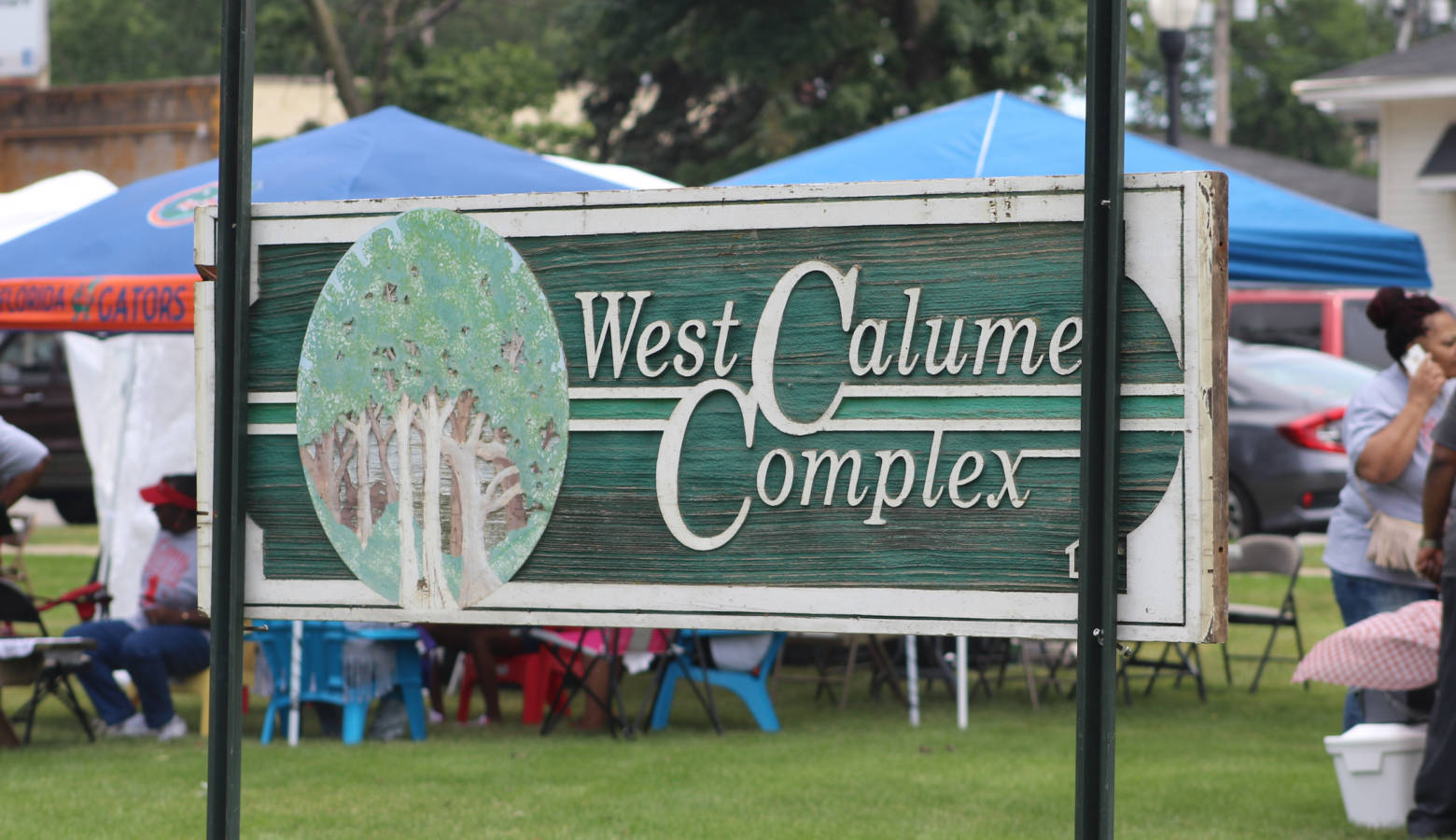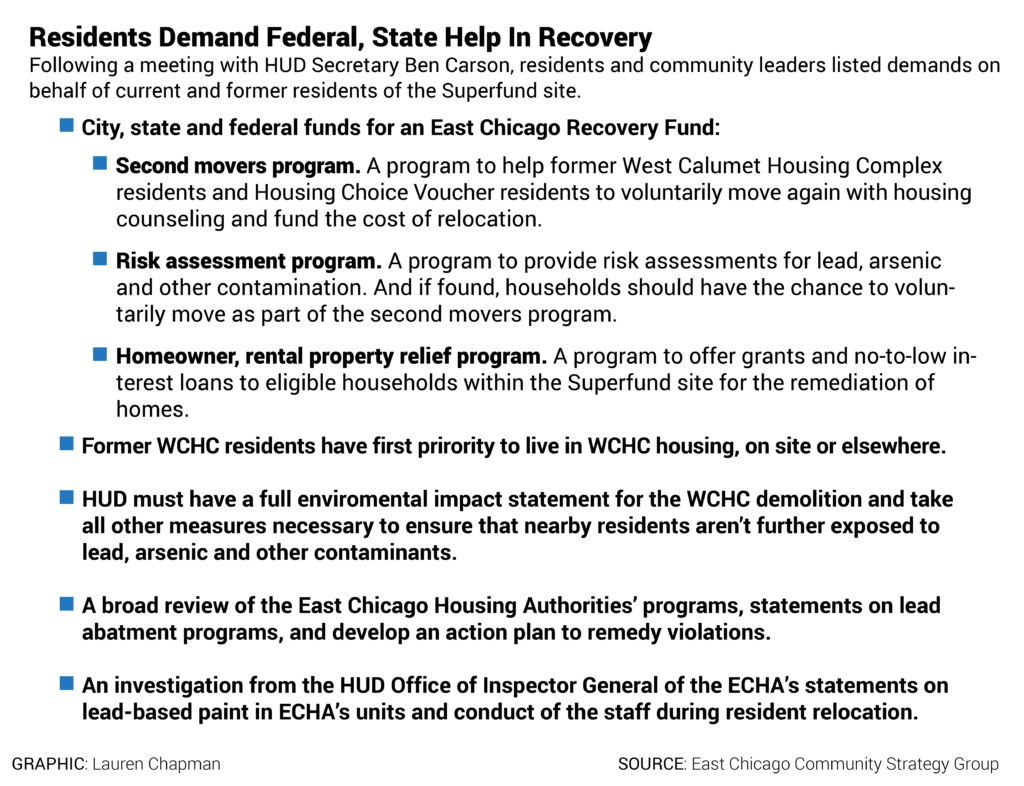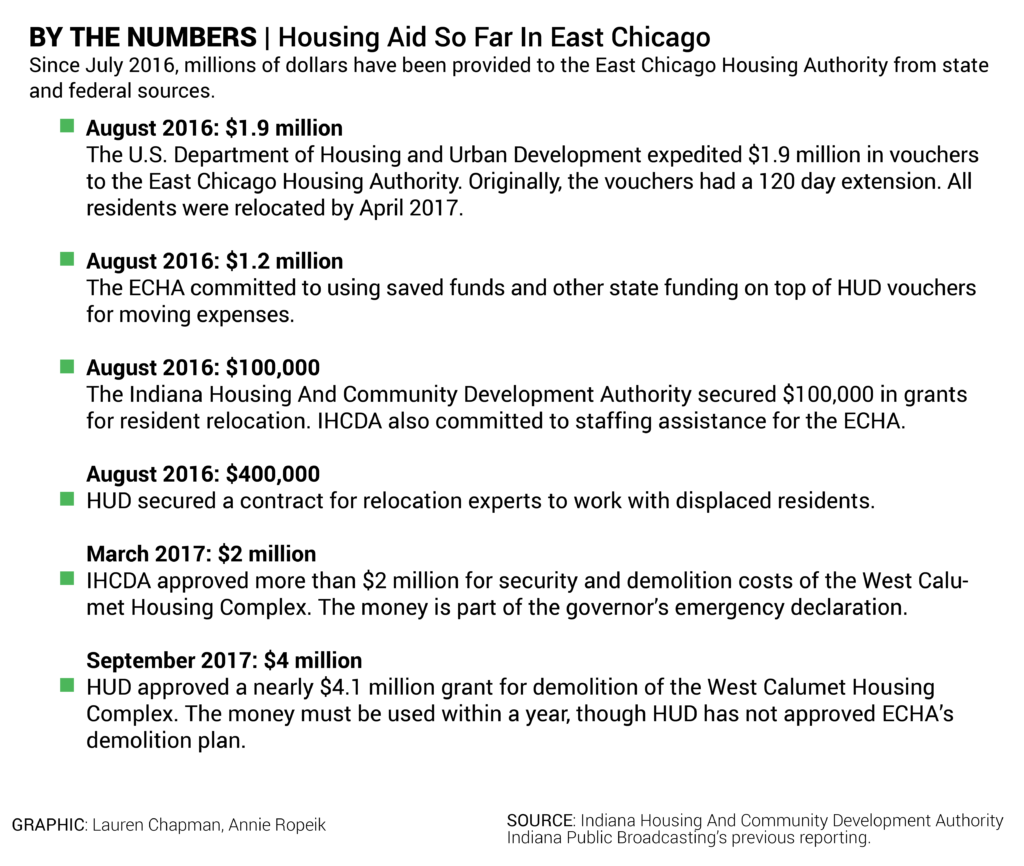State Takes Long View Of East Chicago’s Affordable Housing Needs

Lake County and East Chicago could have new affordable housing by 2020 as part of a state tax credit program called Moving Forward.
It’s how officials plan to fulfill their promise to help East Chicago residents displaced by lead contamination.
Indiana Housing and Community Development Authority executive director Jake Sipe says Moving Forward tries to rethink affordable housing as about more than just a number of units.
“We’re defining success by the impact that we can have on the community that encourages economic development, but also thinking about the residents’ success, and how they can continue to [have] upward mobility on their economics and their jobs and their quality of life,” Sipe says.
The program started with a focus on transportation and energy, he says, but has grown to cover the whole cycle of poverty – and innovative ways to break families out of it. Developers chosen for the program have to hold a workshop to brainstorm solutions before deciding where to build.
The latest Moving Forward focuses on Lake County, and Sipe wants at least one project to end up in East Chicago. Gov. Eric Holcomb’s February emergency declaration for the city’s lead crisis directed the state housing authority to spur affordable housing development in the area.
As part of it, Sipe says they’ll try something new at the Moving Forward workshop in November. They’ve invited two residents who were forced to leave East Chicago’s badly contaminated West Calumet Housing Complex.
Uprooted residents want first dibs on any new housing nearby – which Sipe says the state will keep in mind.
“They’re the experts when it comes to the types of housing that will provide them with the greatest opportunity to be successful,” he says.
Housing justice attorney Kate Walz has worked in East Chicago for more than a year, and says residents need that voice if the state hopes to change their lives.
“I think oftentimes what the mistake is with affordable housing design, is they sort of come up with it first on their own, and then apply it to the community without getting their input,” she says.
The developers tapped for Moving Forward in Lake County say they don’t plan to do that.
Pete Schwiegeraht is a senior developer at Ohio-based Miller-Valentine Group. He says they work with local nonprofits at the majority of their projects.
“To simply house someone is only providing a good home,” he says. “To empower someone, you really need to have an approach that includes education and training and betterment systems.”
The latest Moving Forward’s other developer is UP Development, which ran Chicago’s Cabrini-Green housing project in 2008 – when a rusty gate fell and killed 3-year-old Curtis Cooper.
“It was a terrible tragedy,” says UP Development president Jessica Berzac.
UP and the city settled with the Cooper family. And Berzac says they learned a lot about managing and listening to tenants.
That’s why she says her company is excited to work directly with people in East Chicago.
“I never want to impose a plan on a community or a person, but instead, hopefully, add good ideas to what they already desire for their own lives,” she says.
The community has plenty of ideas already – including on how public officials can help in the short term.
East Chicagoans affected by lead have written to the U.S. Department of Housing and Urban Development, the state and city, asking them to pay for more relocation of former West Calumet residents and others.
 No agency has indicated they’ll provide that funding, but attorney Kate Walz hopes they’ll reconsider.
No agency has indicated they’ll provide that funding, but attorney Kate Walz hopes they’ll reconsider.
“That’s a standard, if not typical, use of federal and housing-community development funds,” she says. “And I don’t think it would leave the state without more than enough resources to do other work.”
Jake Sipe, with the state housing authority, says it’s done everything the governor asked.
Moving Forward’s two Lake County developments aren’t slated to open until around 2020.

